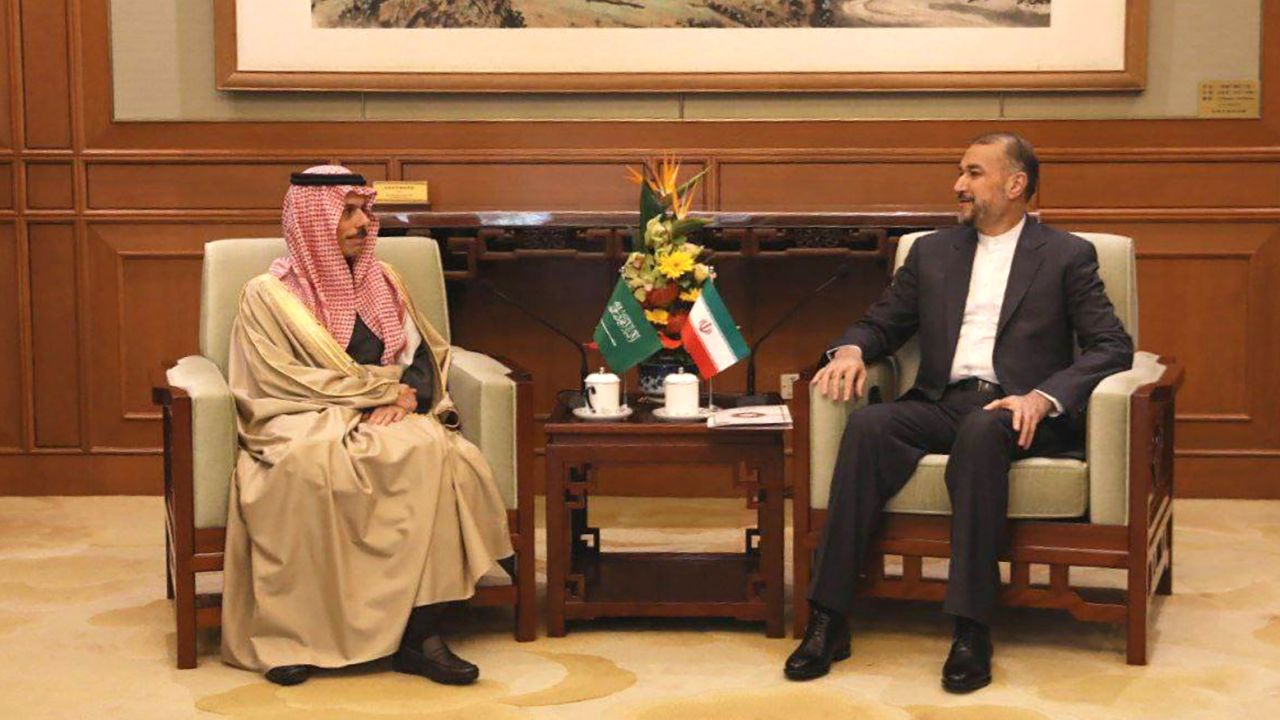Riyadh, Saudi Arabia – Saudi Arabia has to not only enhance its defensive capabilities but also establish effective deterrence measures against Iran and its proxies, particularly in the context of its ambitious Vision 2030 initiative, a latest analysis by Middle East Institute (MEI) says.
The policy brief authored by MEI analyst Bilal Y. Saab outlines three primary deterrence options for Saudi Arabia, which are not mutually exclusive: diplomacy, external protection, and military capability improvement. Diplomacy, despite its imperfections stemming from differing threat perceptions and goals between Saudi Arabia and Iran, is deemed the most viable option at present. Diplomatic efforts are seen as crucial in maintaining stability and achieving deterrence.
However, Saab has serious misgiving about the diplomacy delivering the peace. “Profound discrepancy in threat perceptions and objectives between Saudi Arabia and Iran does not make for a productive security dialogue,” the analysis points out. “In the absence of symmetry on the issues and some level of mutual vulnerability, it is hard to see meaningful breakthroughs in a Saudi-Iranian dialogue.”
The option of external protection involves securing official security guarantees from a foreign ally to deter potential Iranian aggression. The United States and China are identified as potential candidates for such partnerships. However, while China played a role in facilitating the Saudi-Iranian normalization deal, its interests in the region are primarily economic, making a formal alliance with Saudi Arabia less likely. Moreover, China’s military capabilities and presence in the region are insufficient to effectively provide protection.
The policy brief examines the potential for a defense pact between Saudi Arabia and the United States. Saudi Arabia’s request for security guarantees and assistance with its civilian nuclear program was discussed, but the feasibility of such an arrangement remains uncertain. President Joe Biden has expressed hesitancy regarding this proposal, suggesting that Washington may not be eager to commit additional military resources to the Middle East amid other global security concerns.
It emphasizes that the development of more potent military capabilities is essential for Saudi Arabia’s long-term security. The current Saudi military arsenal lacks the necessary deterrent power against Iran. While efforts to enhance ballistic missile capabilities are acknowledged, they also come with inherent risks. The policy brief suggests that the United States could support Saudi Arabia in strengthening its military capabilities through a new approach to military cooperation, focusing on areas beyond ballistic missiles.
The evolving security situation in the Middle East, particularly the Houthi threat supported by Iran in Yemen, has prompted Saudi Arabia to reassess its security posture. The policy brief underlines that effective deterrence against Iran is crucial not only for safeguarding Saudi Vision 2030 but also for maintaining regional stability. Diplomacy, external protection, and military capability enhancement are all presented as potential tools for achieving this deterrence, with diplomacy currently being the most viable option despite its challenges.
Saab emphasizes the importance of Saudi Arabia’s proactive approach to deterring Iran’s threats in the context of its Vision 2030 initiative. By leveraging a combination of diplomatic efforts, potential external alliances, and military capability development, Saudi Arabia aims to establish an effective deterrence strategy against Iran, while navigating the complexities of the Middle Eastern security landscape.
“Saudi Arabia’s deterrence options against Iran are not great, but Washington’s options for preventing Saudi Arabia from pursuing them are worse,” the author explains. “So long as the United States has (legitimate) concerns about providing Riyadh with a formal defense pact, the Saudi leadership will use any means necessary to achieve a deterrent against Iran.”

